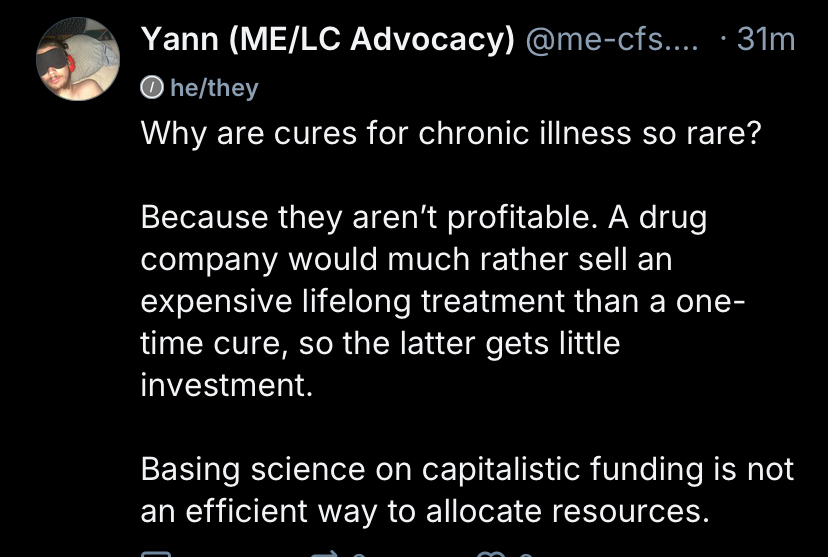this post was submitted on 15 Dec 2024
673 points (87.8% liked)
Microblog Memes
6034 readers
2276 users here now
A place to share screenshots of Microblog posts, whether from Mastodon, tumblr, ~~Twitter~~ X, KBin, Threads or elsewhere.
Created as an evolution of White People Twitter and other tweet-capture subreddits.
Rules:
- Please put at least one word relevant to the post in the post title.
- Be nice.
- No advertising, brand promotion or guerilla marketing.
- Posters are encouraged to link to the toot or tweet etc in the description of posts.
Related communities:
founded 1 year ago
MODERATORS
you are viewing a single comment's thread
view the rest of the comments
view the rest of the comments

Yeah, we've cured a ton of previously chronic diseases. I don't know what planet these people live on. We've even effectively cured certain cancers in our lifetimes, and more will come. It's also just much harder to cure something than treat something.
I'm really struggling to think of any, most coming to mind are bacterial or viral, though I'm certain there are thousands of chronic human pathologies we've cured, some we probably don't even remember curing because the terminology is so outdated (though sadly dropsy is still a thing, and frustratingly consumption isn't eradicated yet ....but it could be!)
Can you give me a starting point if you've got one on your tongue? I'd like to journey down the Wikipedia rabbit hole tonight!
hidradenitis suppurativa
edit: i read wrong, that's uncured, i could imagine that along with what you mentioned, a lot are likely nutrition-based, treatments have gotten better for a lot of things, outlooks and lifespans for certain genetic conditions, but off the top of my head i can't think of anything that has a "cure" that's not viral or environmental
There's surgical interventions that cure a lot of things, like certain kinds of blindness, or pretty much anything that requires a transplant.
With two prospective diabetes cures moving towards human trials, I hope there will be a more compelling answer in 10 years or so, but that's TBD.